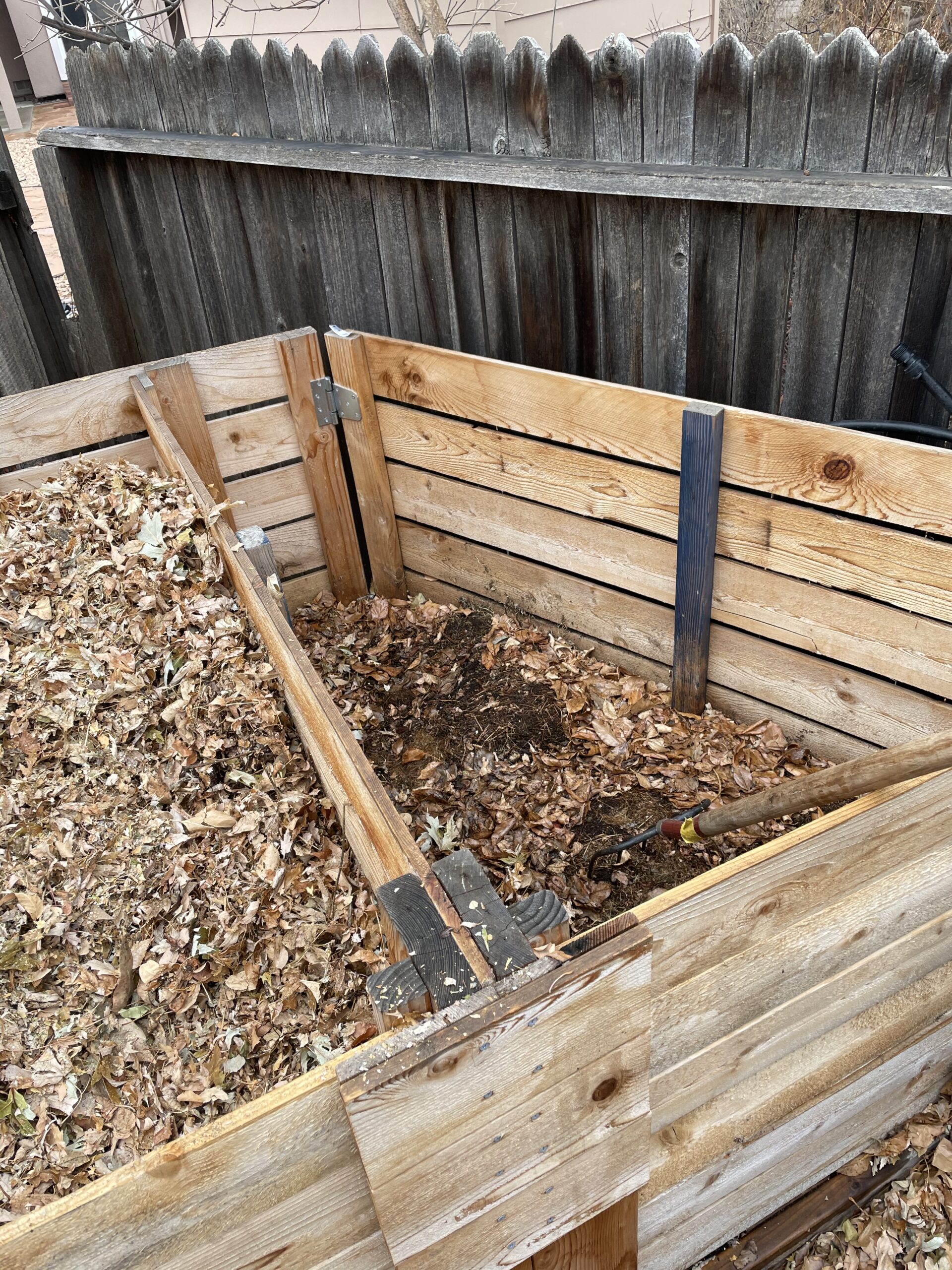


Fall leaves are a valuable resource because they keep garden soil productive. By following a few tried and true composting techniques, you can optimize fall-leaf composting.
The minimum size for compost bins is three feet by three feet by three feet. Bins larger than six feet across may restrict oxygen infiltration and slow decomposition.
It’s best to mix some nitrogen into the leaves as you add them to the compost. Leaves are high in carbon, which makes great compost, but they’re comparatively low in nitrogen, and that’s what decomposing bacteria feed on. You can add nitrogen in the form of fertilizer or fresh green organic matter. Just add one-quarter to one-half cup of standard lawn fertilizer per bushel, or add one part dry leaves with two parts fresh grass clippings or similar green garden debris. If you use a fertilizer, be sure to select one that doesn’t contain any weed killers.
As you add leaves to the compost, moisten them until they’re the consistency of a wet sponge. Check the compost regularly and water to maintain adequate moisture content. Moisture is slow to soak through a leaf pile and is essential for decomposition. Be careful not to over-water, because you don’t want the leaves to be soggy.
Whole leaves are better for compost than leaves that are shredded or mulched with a lawn mower. Finely chopped leaves may pack down excessively in the compost bin, restricting oxygen infiltration necessary for decomposition.
By following these simple guidelines, you can produce fall-leaf compost by late spring. An unattended a pile of leaves may take two to three years to decompose.
For more information, see the following Planttalk Colorado™ video(s).
For more information, see the following Colorado State University Extension fact sheet(s).



